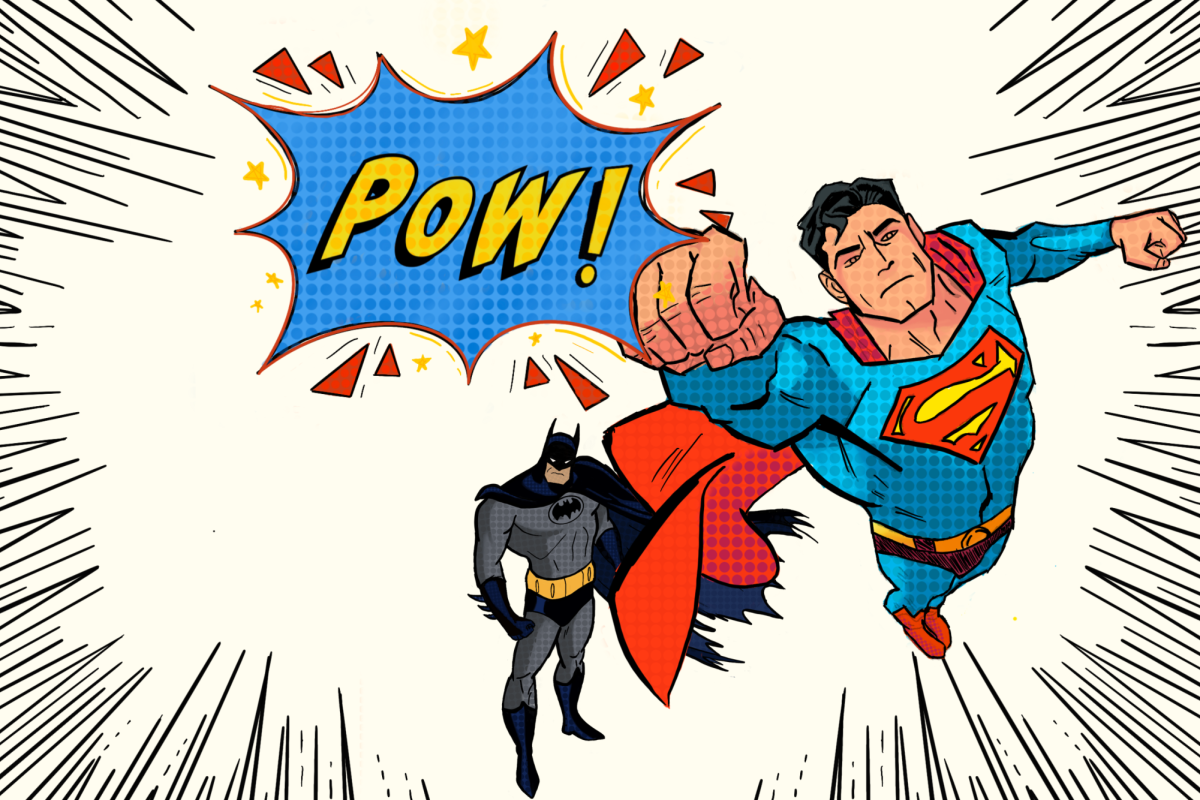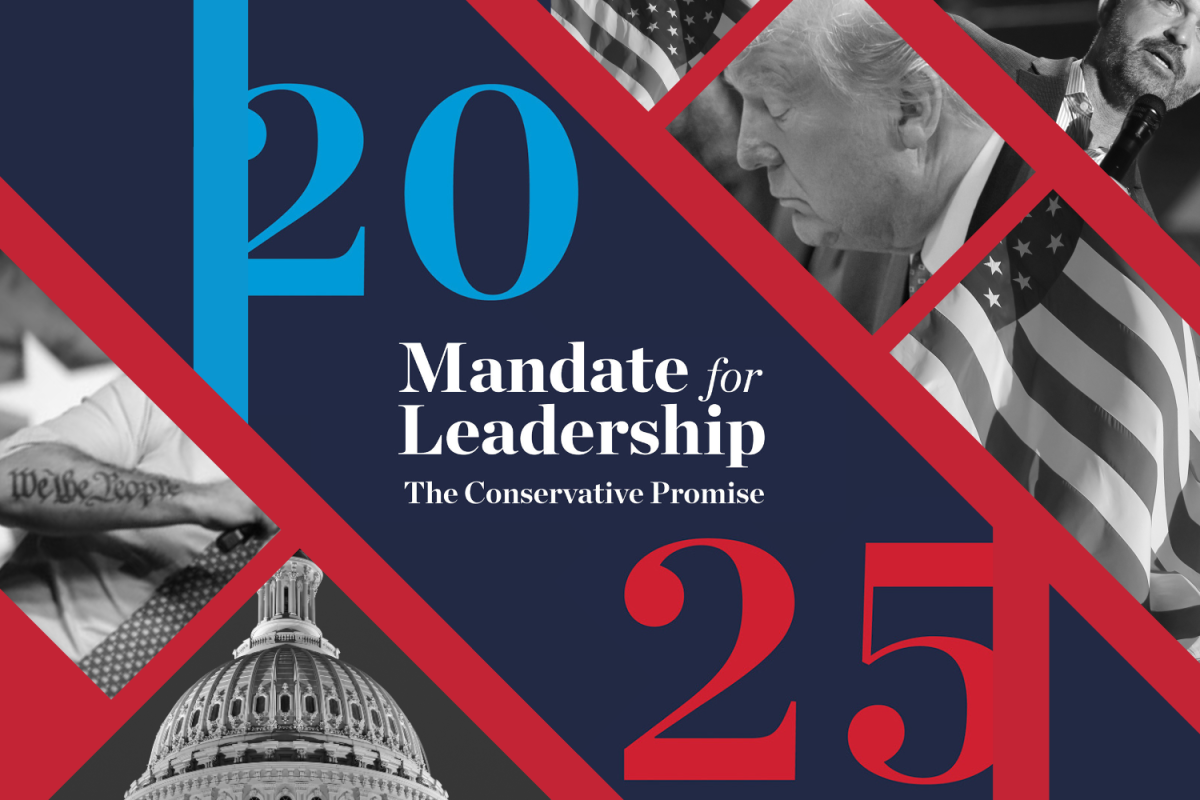Who’s better: Batman or Superman? The two titans of DC Comics are often compared, with Batman taking the majority of support. Batman has proven himself to be far more popular; his movies have higher box office returns, greater comic book sales and more notoriety. But when analyzing the impact of each character, Superman is superior in every way and provides a better example for society.
Batman’s inspiration came from superficial pop culture trends, shockingly simple compared to Superman’s. Batman made his debut in Bill Finger and Bob Kane’s 1939 Detective Comics No. 27. His conception was inspired by noir crime dramas in the 1930s, such as the television show “I Love a Mystery,” and his first adventures didn’t show him fighting for the citizens of Gotham, but rather a detective-style investigation into the murder of a rich socialite.
Superman had made his debut a year earlier, in the 1938 Action Comics No. 1. The character revolutionized the idea of comic books, providing a new precedent of out-of-the-world characters with extraordinary abilities who protected the innocent. His origin story was immediately iconic: an infant from the planet Krypton sent to Earth before his home’s destruction, adopted by two humble farmers, who taught him to control his alien superpowers and influenced him to protect the city of Metropolis.
The story behind Superman’s conception was deeply tied to historical events. He was created by Jerry Siegel and Joe Schuester, two Jewish writers who had faced prejudice for their religion and drew from their parent’s experiences of prejudice in their home of Russia, imbuing ideas of immigration and alienation in Superman’s story. The character was closely associated with defending the innocent, mainly fighting domestic abusers, muggers and criminals. When compared to Batman, he represented ideals of kindness and compassion.
“Superman’s character has changed less over time,” indie comic book writer Allen Wu said. “It’s interesting because his character is more pronounced by how much darker other comics can be. Now there’s many more mature stories, but Superman has always been this beacon of light, positivity, self-integrity and justice.”
From their first pages, the characters showed what they represented perfectly. Superman spent his time championing the helpless, representing hope and optimism in the face of prejudice, whereas Batman was created solely for sales with little thought about the social impact he could have. Superman represented change and prosperity in times of strife, while Batman represented popular demand and commerciality.
Most influential comics have depicted Batman beating Supermanin a landslide. Comics like Frank Miller’s “The Dark Knight Returns” featured an older and grizzled Batman annihilating Superman with his intelligence and strategy. In films like “Batman v. Superman: Dawn of Justice,” Batman’s scientific knowledge and physical prowess far overpowered Superman. Since people tend to root for the underdog, having a powerless superhero against a god-like being makes readers automatically inclined towards Batman.
“Superman could still be a good role model, but I think he’s less of an inspiration,” junior Patrick Heydinger said. “What Superman does could still benefit the population and inspire a lot of people, but it’s not realistic compared to Batman, whose actions seem more possible for the average person.”
Batman’s winning streak proves the extent of Superman’s patience. In “The Dark Knight Returns,” Superman offers a truce with Batman, but instead of reciprocating peacefully, Batman uses this warning to prepare for a battle immediately. Only fighting as a last resort and giving chance after chance to settle arguments peacefully, Superman’s morality outshines Batman’s.
Even Batman and Superman’s home cities show their competence at heroics. Superman’s home of Metropolis is much better cared for than Batman’s Gotham City. The home of Batman is continuously represented as a hive of criminals and pollution. Modern Batman media such as “The Dark Knight” and “The Batman” shows corrupt police officers working directly under mob bosses. If Batman wanted to make any permanent change, he would find ways to help criminals believe that they can be better than their sins. Instead, he does little to combat these problems, merely threatening criminals with violence if they continue their crimes.
Meanwhile, Metropolis manages to keep its crime rates under control, earning the moniker of the “City of Tomorrow”. It wasn’t always this way; many comics such as “Superman: Secret Origins” depict Metropolis as a drab society, devoid of hope or kindness, with lower class individuals clawing at each other to climb to the top. After Superman’s arrival, the people of Metropolis are inspired by Superman’s relentless pursuit for a more compassionate tomorrow despite their originally cynical nature.
Superman inspires societal improvement and preaches kindness; Batman, with all the influence that he has, doesn’t even try to improve the systems of corruption that plague his city. Many are drawn towards Gotham’s nihilistic tone, favoring this realistic portrayal over a utopia like Metropolis. Batman’s rise in support is based on this attraction to corruption and imperfections. Compared to him, Superman’s apparent perfection and boy scout-esque personality seems basic and uninteresting.
“Heroes should be role models,” Wu said. “They can help us learn lessons by communicating certain themes. Some of these repeated virtues and sayings, like ‘be kind’ or ‘have less prejudice,’ can feel cliche when reading, but they still have a lasting effect and impact on readers.”
Overwhelming support for Batman over Superman shows how optimism is viewed in modern society. People have come to dismiss the idea of hope as cheesy, but iconic figures such as Superman could help the idea of optimism resurface, and let future generations not just want, but believe in a better tomorrow.
“I think a hero is supposed to inspire people to do good and be better” junior Hashim Mahmood said. “Fighting physical evil isn’t always enough; a hero should inspire people to be their best self and to form good morals.”





































































